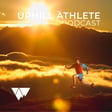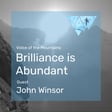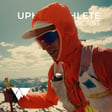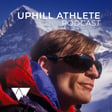
Skyrunning with Lukas Mann
The Uphill Athlete podcast returns with a special episode discussing the newest training plans release, the Uphill Athlete Skyrunning plan. Alyssa welcomes mountain athlete and influencer Lukas Mann to the podcast to discuss his experiences working with Alyssa as she developed the skyrunning plan around his training for the Minotaur Skyrace. The two discuss Lukas’ background in mountain sports and his transition to adding trail running as a staple to his mountain toolbox. They break down Lukas’ training cycle, the challenges and growth he felt using the plan, and his experience in the Minotaur Skyrace. Tune in to learn more about the background of building training plans and to hear about a fantastic mountain athlete challenging himself in a new discipline. You can check out the plan in the Uphill Athlete Training Peaks store and hit the link in the bio to learn more.
https://www.trainingpeaks.com/training-plans/running/trail/tp-488866/trail-running-skyrunning



















